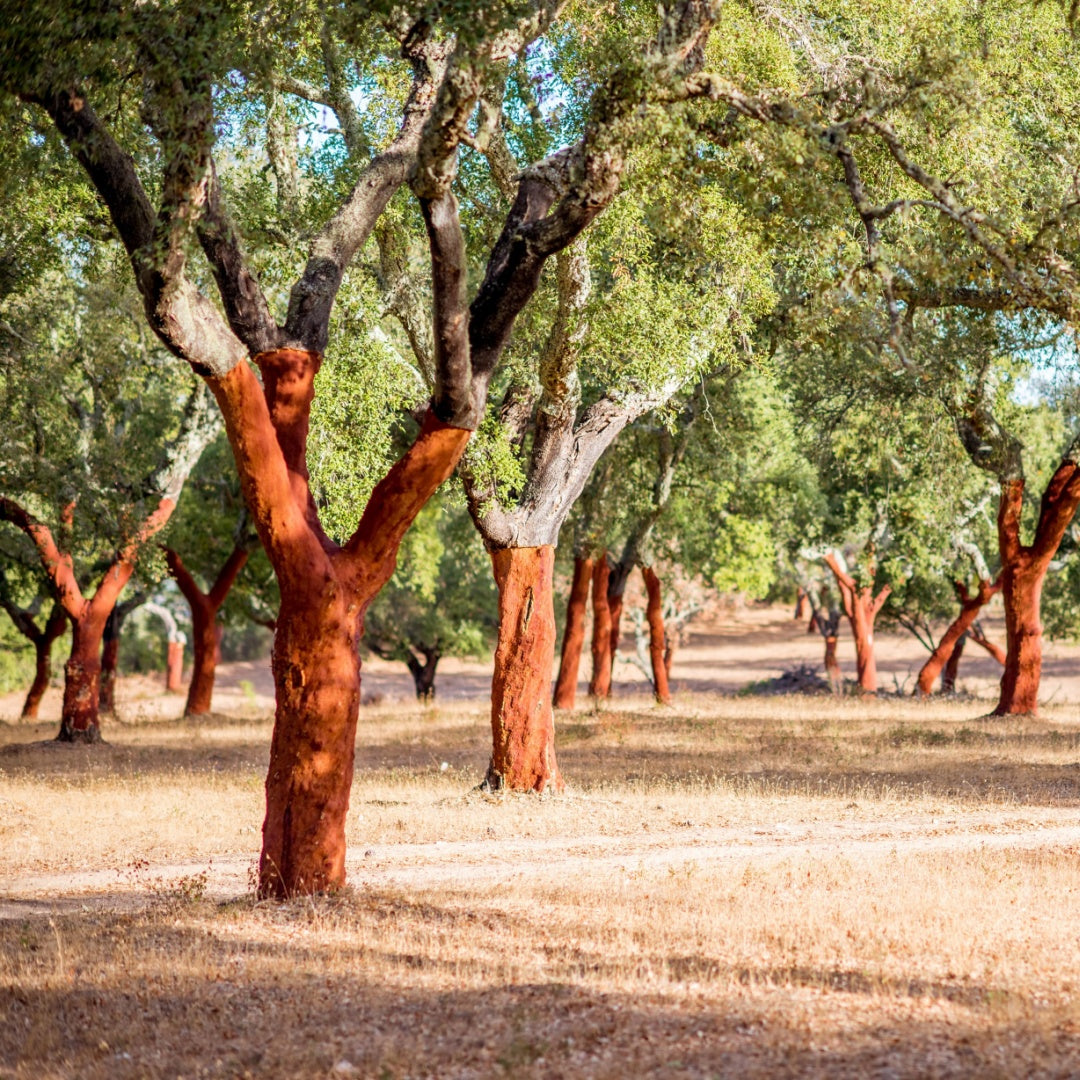A Guide to Premium Cork Stoppers

Culture, Nature, Future
Knowledge Passed from Generation to Generation
For thousands of years, cork has been an essential part of human history, protecting and inspiring countless generations. Its potential was discovered long ago, and today, the expertise behind cork’s excellence continues to be passed down without harming a single tree. This remarkable tradition endures in industries where cork remains synonymous with quality and sustainability.
The Choice of Wine Experts
Cork has stood the test of time as the preferred closure for wine bottles. Over 70% of winemakers worldwide choose cork to seal around 12 billion bottles each year. Its proven ability to preserve wine and enhance its aging process has solidified its status as the gold standard in the industry.
100% Natural and Sustainable
Cork is more than just a material—it’s a 100% natural, sustainable, and recyclable resource. Cork oak forests play a vital role in absorbing carbon dioxide, helping to mitigate climate change. In fact, these forests are capable of sequestering up to 14 million tons of CO2 annually, making them a key player in the fight against global warming.
A Biodiversity Haven
Cork oak forests are one of the world’s 35 biodiversity hotspots, serving as home to many endangered species. These forests not only support rich ecosystems but also help control soil erosion, regulate water cycles, and combat desertification, making them invaluable to the environment.
Innovation Meets Tradition
Cork’s versatility extends far beyond wine stoppers. From aerospace technology to advanced polymer materials for transportation and top-tier sports gear, cork has proven to be a high-performance material in a variety of industries. Its role in architecture and design is another testament to its ability to merge tradition with modern technology.
A Sustainable Future for All
At its core, the cork industry represents more than just material production—it’s a pillar of environmental, social, and economic sustainability. For millions of people in the western Mediterranean, cork is a symbol of sustainable development that proves a future in harmony with nature is possible.
The Montado is a highly cultivated and managed landscape in Portugal, covering approximately 21% of the nation's forest area and producing more than 50% of the world's cork. While cork oak trees are found throughout Portugal, they are particularly concentrated in the Alentejo region, where vast cork forests define the landscape. Globally, the Montado extends over two million hectares, predominantly in the Mediterranean basin, with Portugal accounting for 30% of the total.
Cork, the outer bark of the cork oak (Quercus Suber L.), thrives in this unique ecosystem. Found mainly in the western Mediterranean, the cork oak has developed within manmade environments called Montados in Portugal and Dehesas in Spain. One of the tree's most remarkable characteristics is its ability to naturally regenerate its bark after each harvest, ensuring a renewable resource.
Harvesting cork is a highly skilled and delicate process, governed by strict legal guidelines that dictate the season, frequency, intensity, and technique to ensure the tree's health and continuous growth.

